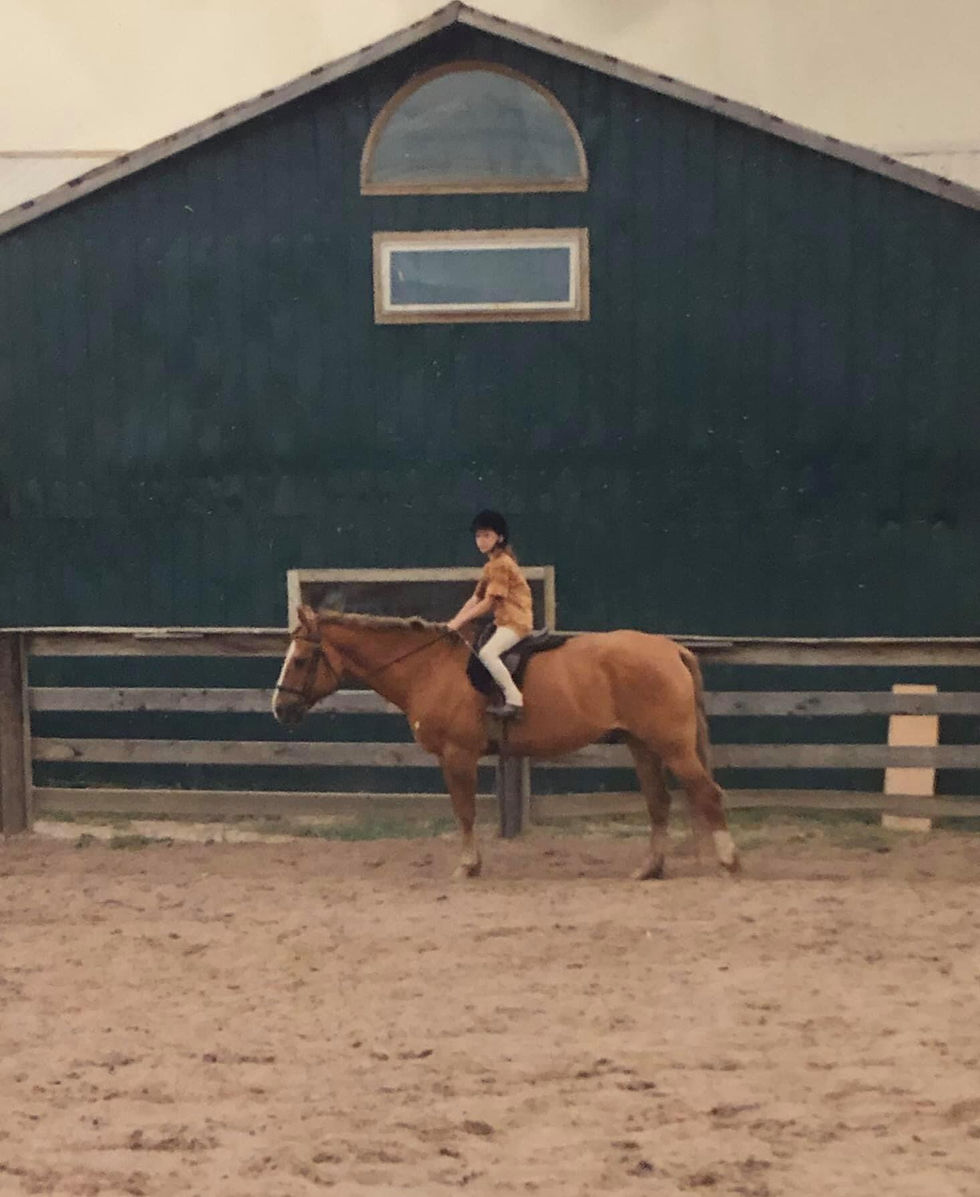We need to talk about the "Ride Better" post
- Cate Chant

- Feb 16, 2022
- 4 min read
Updated: Feb 16, 2022

There’s a post that's been widely circulated on Facebook featuring a diatribe that opens with “Dear Young Rider” and concludes with "Ride Better”, posited as the solution to every problem a young rider might face from biased judging to bad footing to competing against billionaires.
I will be the first person to tell you that hard work is an essential component of being a successful rider, but it’s an absolute fallacy to suggest that hard work alone can make up for the rampant inequalities in equestrian sports. There are countless ways the post is problematic, and I found it discouraging that it has been shared thousands of times by people agreeing with the author’s message and stating that they “couldn’t have said it better themselves.”
The author opens her post by saying that people think of riding as a “frivolous, elitist activity reserved for vacation adventurists and the wealthy” and that no one outside of your family and friends has any interest in it. I’d like to think people do care about equestrian sports, and to chalk it up to a frivolous, elitist hobby perpetuates how inaccessible the sport is and how unaffordable it has become. As horse lovers, shouldn’t we all want riding to be accessible to as many people as possible? Isn’t the love of horses the reason most people began riding in the first place? Don’t you want to be the type of rider who makes people think of riding as a legitimate sport and not the weekend pastime of the super-wealthy? If we’re throwing up our arms and saying “too bad, riding is expensive!” we’re accepting the conditions that make riding exclusive instead of advocating for inclusion and promoting grassroots involvement in the sport that ensures its relevance in the future.
There’s no denying that riding has become unaffordable for the vast majority of people, and it’s no coincidence that almost all of the competitors in any big Grand Prix are either offspring of professionals who started their businesses at a time when riding was less expensive or share their last names with Forbes 500 CEOs. Just to get your foot in the door at any given lesson barn as a child, you need to have parents who can afford to pay for lessons and who have a vehicle and enough time off to drive you there, which eliminates a lot of people who love horses and would love to take lessons in the first place. If you’ve even made it to a horse show to begin with, you have already bypassed a lot of the obstacles that prevent people from being able to ride at all before work ethic even enters the picture.
Now let’s say you’re at the show and you’re the young rider to whom this post has been directed. You dream of competing in the Big Eq — an established pathway to becoming a professional — but you have one horse who’s absolutely maxed out in the 3’ divisions. We’ve already established that you’re extremely lucky to be there but no amount of willing yourself to become a better rider is going to change the fact that someone with a string of horses who gets to lesson every day and show every weekend is going to ride better than you, and that opportunities like catch riding and working student positions will be presented to them before you.
“Money helps” is a laughably simplistic way to describe the socioeconomic barriers to success in the horse world, and publishing a demeaning message to a child saying no one feels sorry for them and they just have to work harder ignores this reality. Unlike the author, I do have empathy for any young rider who feels disheartened competing against riders with greater opportunities that are by and large the result of greater finances, and my message to them would be to try not to compare yourself to others — focus on yourself and improving your own performance with the tools available to you, but know that whether someone receives “recognition and reward” in this sport is a reflection of so much more than just willingness to work hard, and not receiving recognition is not a reflection of your talent, dedication or worthiness as a rider.
Further, the idea the author puts forth that you have to “sacrifice everything” to succeed in the sport is damaging. The notion that you should work yourself into the ground, ruin friendships, and give up any enjoyment of life outside of horses perpetuates a harmful belief system that leads to burnout among professionals and drives away aspiring riders who might otherwise pursue a career in the industry. If you’re accumulating credit card debt to attend horse shows and sleeping in the tack room to afford new boots, that should be sounding alarm bells that there are much greater problems in the industry than kids being lazy.
I wish that collectively as professionals, we spent a little more time discussing things like burnout — how it’s okay to take a day off and have interests outside of horses, and how to make our sport more accessible — why is it so hard to be competitive on a Thoroughbred? And why are opportunities like the USHJA Horsemastership Clinic only presented to riders who haven’t experienced many of the barriers to competing at a higher level? — rather than preserving a myth that hard work is all it takes to succeed in the industry.






Comments